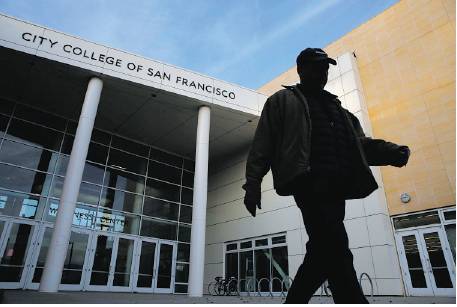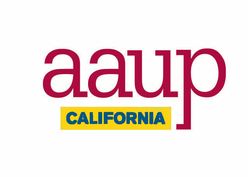Please feel free to circulate widely and use to start a discussion on yourcampus about the inclusion of Lecturers in all facets of governance.
The individual resolutions acted on by the ASCSU at its January 22-23, 2015 Plenary may be found at The individual resolutions acted on by the ASCSU at its January 22-23, 2015 Plenary may be found at http://www.calstate.edu/acadsen/Records/Resolutions/2014-15.shtml
AS-3199-14/FA (Rev) November 5-6, 2014
Second Reading
Non-Tenure Track Faculty and Shared Governance in the California State University: A Call to Campus Senates
1. RESOLVED: That the Academic Senate of the California State University (ASCSU) acknowledge the contributions of lecturers and non-tenure track librarians, coaches and counselors to the value of the institution; and be it further
2. RESOLVED: That the ASCSU affirm that opportunities for democratic participation, for all faculty unit employees including voting eligibility, leadership opportunities, campus and Statewide Senate representation, and inclusion at college, division, and departmental meetings are essential components of shared governance, and collegiality; and be it further
3. RESOLVED: That the ASCSU encourage campus senates to review or revise their constitutions and policies in order to include lecturers, non-tenure track librarians, coaches, and counselors, in the term “faculty” in a manner consistent with the CSU-CFA Collective Bargaining Agreement (Article 2.13); and be it further
4. RESOLVED: That the ASCSU, while maintaining its strong resolve to increase the percentage of tenure-track positions per ACR73 recommendation, and in deference to campus and departmental autonomy, encourage campus senates to review or revise policies in order to encourage the participation of all faculty unit employees in governance matters, wherever appropriate. Participation of non-tenure track faculty in shared governance in the CSU should not supplant the purview of tenured and probationary faculty and should be fairly compensated
5. RESOLVED: That the ASCSU distribute this resolution to
· CSU Board of Trustees
· CSU Chancellor,
· CSU campus Presidents,
· CSU campus Senate Chairs,
· CSU Provosts/Vice Presidents of Academic Affairs,
· California Faculty Association,
· CSU Emeritus and Retired Faculty Association
RATIONALE The resolution is informed by the AAUP statistics from 2009: 75.6% of US faculty appointments were off the tenure track. In responding to this disturbing nationwide trend, ASCSU continues to urge progress toward, and adherence to the goals of ACR 73, and has stated its continued support in several past resolutions (e.g. AS-3142-13/FA etc.). Additionally, ASCSU has voiced its support for campuses to include non-tenure track faculty in policies concerning eligibility for emeritus status (AS-3157-13/FA), Research, Scholarship and Creative Activity (RSCA) funding (AS-3173-14/FA), and for protections against any deleterious impacts upon non-tenure track faculty related to their participation in shared governance activities (AS-2931-09/FA). These resolutions, taken in the ensemble, point toward the recognition of the value of all faculty unit employees including non-tenure track lecturers, coaches, counselors, and librarians in the life of the institution, and lead toward a recommendation for the inclusion of these categories under the campus definition of ‘faculty members’. Additionally, such a definition of these categories as ‘faculty’ conforms to the current CSU-CFA Collective Bargaining Agreement (CBA) definition of the term “Faculty Employees” (2.13) (http://www.calfac.org/resource/collective-bargaining-agreement-contract-2012-2014-0#definitions). Furthermore, the January, 2013 AAUP policy document on “The Inclusion in Governance of Faculty Members Holding Contingent Appointments” refers to the 1970 Interpretive Comment on the 1940 “Statement of Principles on Academic Freedom and Tenure,” asserting that “both the protection of academic freedom and the requirements of academic responsibility apply not only to the full-time probationary and the tenured teacher, but also to all others, such as part-time faculty”(http://www.aaup.org/report/governance-inclusion), and recommends shared governance opportunities for those off the tenure track in order to achieve the desired goal of increased “equity among academic colleagues.”
NOTE BENE: this resolution in no way holds that an expansion of participation in faculty governance obviates the fundamental and formative value of tenure to the life of the university, and strongly advises against any application of its recommendation as pretext for the erosion or diminution of tenure. Instead, the generative principle of this resolution lies in the belief that in order to strengthen the values of academic freedom, shared governance, and collegiality, the voice of non-tenure track lecturers, coaches, counselors, and librarians, as part of a unified faculty, deserves to be heard through participation in appropriate channels of non-obligatory faculty governance, and encourages campuses to find methods of fair compensation for such non-obligatory service.



 RSS Feed
RSS Feed